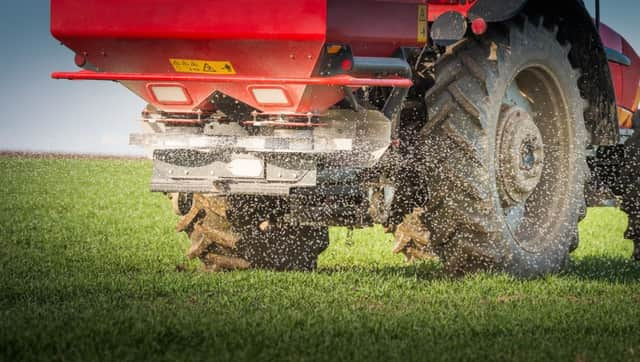Make the most of barley crops this spring


In addition to the prevalence of acid soils in Northern Ireland, they also tend to be very high in magnesium, and conversely low in calcium, meaning a solution is required to address these low levels of calcium and pH for barley crops in particular.
Interestingly calcium-based lime products are consistently under-utilised, even though the level of acidity and nutrient availability from a lime-treated soil would prove critical to the yield of a barley crop.
Advertisement
Hide AdAdvertisement
Hide AdCalcium products such as Granular-Lime are able to prepare the upcoming barley crop for the increasingly difficult growing conditions that we face in NI.
The combination of varying weather conditions and time constraints however, means lime is generally an afterthought. As a consequence, when it comes to sowing barley, lime is often not applied at all. As a result, these barley fields tend to have a lower pH and therefore lower nutrient availability and fertiliser-efficiency than fields that have been treated with lime.
These untreated crops often show symptoms of nutrient deficiency and may require a foliar application of expensive micronutrients to correct the deficiency. Unfortunately, by the time a crop shows symptoms of deficiency, yield damage has already been done.
These nutrient deficiencies could potentially be avoided by correcting soil pH at sowing, using calcium lime-based products.
Advertisement
Hide AdAdvertisement
Hide AdG-Lime is easily applied to the seedbed either pre or post-planting. The highest quality Granular-Lime is superfine with 99.7% passing through a 125mm sieve. The granules break down quickly – so it is 97.9% reactive within four weeks with adequate moisture - meaning pH around the seed is ideal for barley establishment. It is imperative to yields and quality to get the plant off to the best start by maximising root development. By doing so, the plant establishes and powers through the vegetative stage full of vigour and not sluggish due to nutrient deficiency.
It is advisable to always use a soil test to determine your soil pH before applying lime.
Farmers should be careful when addressing very low soil pH values as over-liming the soil can result in temporary pH values above 6.5 causing further nutrient deficiency. It is not advisable to apply more than two tonne per acre of fine quality conventional agricultural lime or 300 kilograms/acre of G-Lime in one application.
However, should your field require a pH correction of greater than 0.6, G-Lime is an ideal product as you can apply 300kg/ac on the ploughed field prior to sowing, and then apply G-Lime again after sowing in early spring when field conditions suit.
Advertisement
Hide AdAdvertisement
Hide AdYour G-Lime supplier should be able to recommend the right rate for applying G-Lime, based on your soil test results.
G-Lime is ideal for correcting the soil pH for your spring barley crop. It is cost effective, reacts quickly and raises soil pH for optimal fertiliser efficiency and nutrient uptake. These qualities give your crop the best chance for good establishment and limiting the need for expensive spring applied foliar nutrients. Make sure to use G-Lime and make the most of your spring barley crop this year.
G-Lime is available from John Thompson and Sons in 28 tonne bulk loads, or in six tonne minimum orders of: 600Kg top-lift bags, 4x500Kg quad packs or 30x50Kg bags. Please ring 02890351321 for further information.